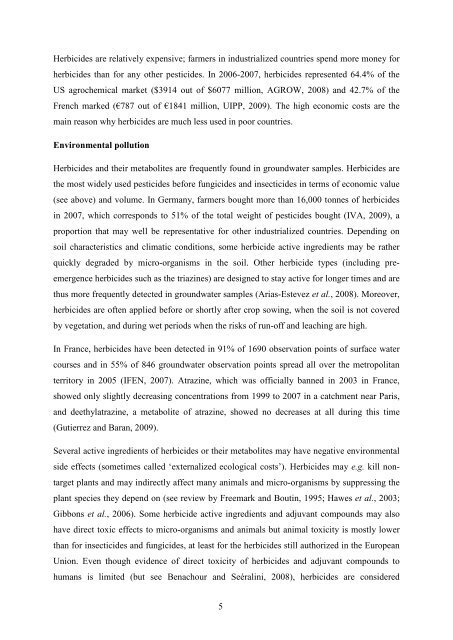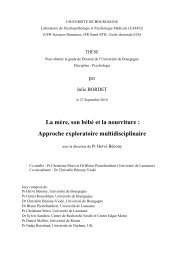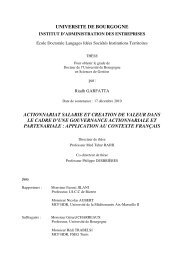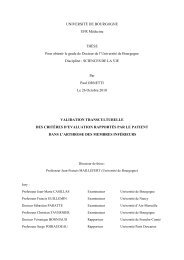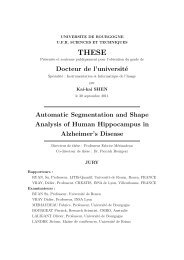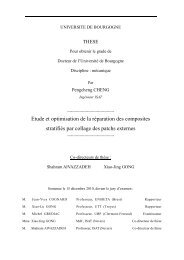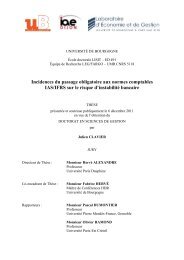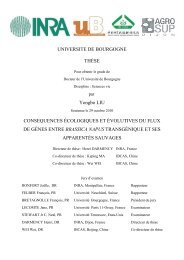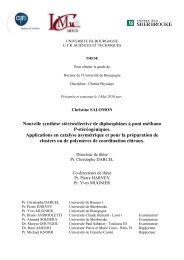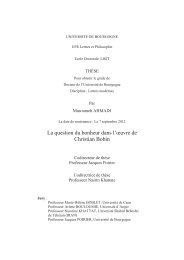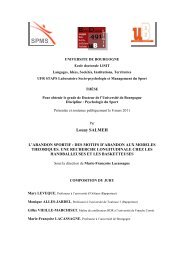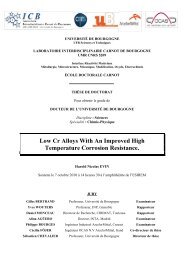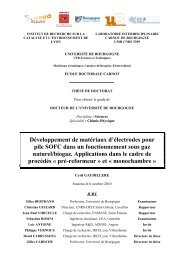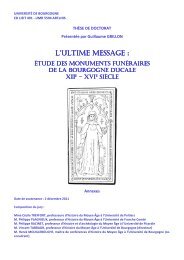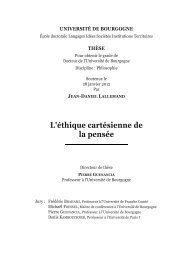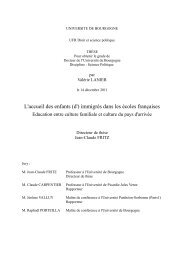Diversifying crop rotations with temporary grasslands - Université de ...
Diversifying crop rotations with temporary grasslands - Université de ...
Diversifying crop rotations with temporary grasslands - Université de ...
Create successful ePaper yourself
Turn your PDF publications into a flip-book with our unique Google optimized e-Paper software.
Herbici<strong>de</strong>s are relatively expensive; farmers in industrialized countries spend more money for<br />
herbici<strong>de</strong>s than for any other pestici<strong>de</strong>s. In 2006-2007, herbici<strong>de</strong>s represented 64.4% of the<br />
US agrochemical market ($3914 out of $6077 million, AGROW, 2008) and 42.7% of the<br />
French marked (€787 out of €1841 million, UIPP, 2009). The high economic costs are the<br />
main reason why herbici<strong>de</strong>s are much less used in poor countries.<br />
Environmental pollution<br />
Herbici<strong>de</strong>s and their metabolites are frequently found in groundwater samples. Herbici<strong>de</strong>s are<br />
the most wi<strong>de</strong>ly used pestici<strong>de</strong>s before fungici<strong>de</strong>s and insectici<strong>de</strong>s in terms of economic value<br />
(see above) and volume. In Germany, farmers bought more than 16,000 tonnes of herbici<strong>de</strong>s<br />
in 2007, which corresponds to 51% of the total weight of pestici<strong>de</strong>s bought (IVA, 2009), a<br />
proportion that may well be representative for other industrialized countries. Depending on<br />
soil characteristics and climatic conditions, some herbici<strong>de</strong> active ingredients may be rather<br />
quickly <strong>de</strong>gra<strong>de</strong>d by micro-organisms in the soil. Other herbici<strong>de</strong> types (including preemergence<br />
herbici<strong>de</strong>s such as the triazines) are <strong>de</strong>signed to stay active for longer times and are<br />
thus more frequently <strong>de</strong>tected in groundwater samples (Arias-Estevez et al., 2008). Moreover,<br />
herbici<strong>de</strong>s are often applied before or shortly after <strong>crop</strong> sowing, when the soil is not covered<br />
by vegetation, and during wet periods when the risks of run-off and leaching are high.<br />
In France, herbici<strong>de</strong>s have been <strong>de</strong>tected in 91% of 1690 observation points of surface water<br />
courses and in 55% of 846 groundwater observation points spread all over the metropolitan<br />
territory in 2005 (IFEN, 2007). Atrazine, which was officially banned in 2003 in France,<br />
showed only slightly <strong>de</strong>creasing concentrations from 1999 to 2007 in a catchment near Paris,<br />
and <strong>de</strong>ethylatrazine, a metabolite of atrazine, showed no <strong>de</strong>creases at all during this time<br />
(Gutierrez and Baran, 2009).<br />
Several active ingredients of herbici<strong>de</strong>s or their metabolites may have negative environmental<br />
si<strong>de</strong> effects (sometimes called ‘externalized ecological costs’). Herbici<strong>de</strong>s may e.g. kill nontarget<br />
plants and may indirectly affect many animals and micro-organisms by suppressing the<br />
plant species they <strong>de</strong>pend on (see review by Freemark and Boutin, 1995; Hawes et al., 2003;<br />
Gibbons et al., 2006). Some herbici<strong>de</strong> active ingredients and adjuvant compounds may also<br />
have direct toxic effects to micro-organisms and animals but animal toxicity is mostly lower<br />
than for insectici<strong>de</strong>s and fungici<strong>de</strong>s, at least for the herbici<strong>de</strong>s still authorized in the European<br />
Union. Even though evi<strong>de</strong>nce of direct toxicity of herbici<strong>de</strong>s and adjuvant compounds to<br />
humans is limited (but see Benachour and Seéralini, 2008), herbici<strong>de</strong>s are consi<strong>de</strong>red<br />
5


